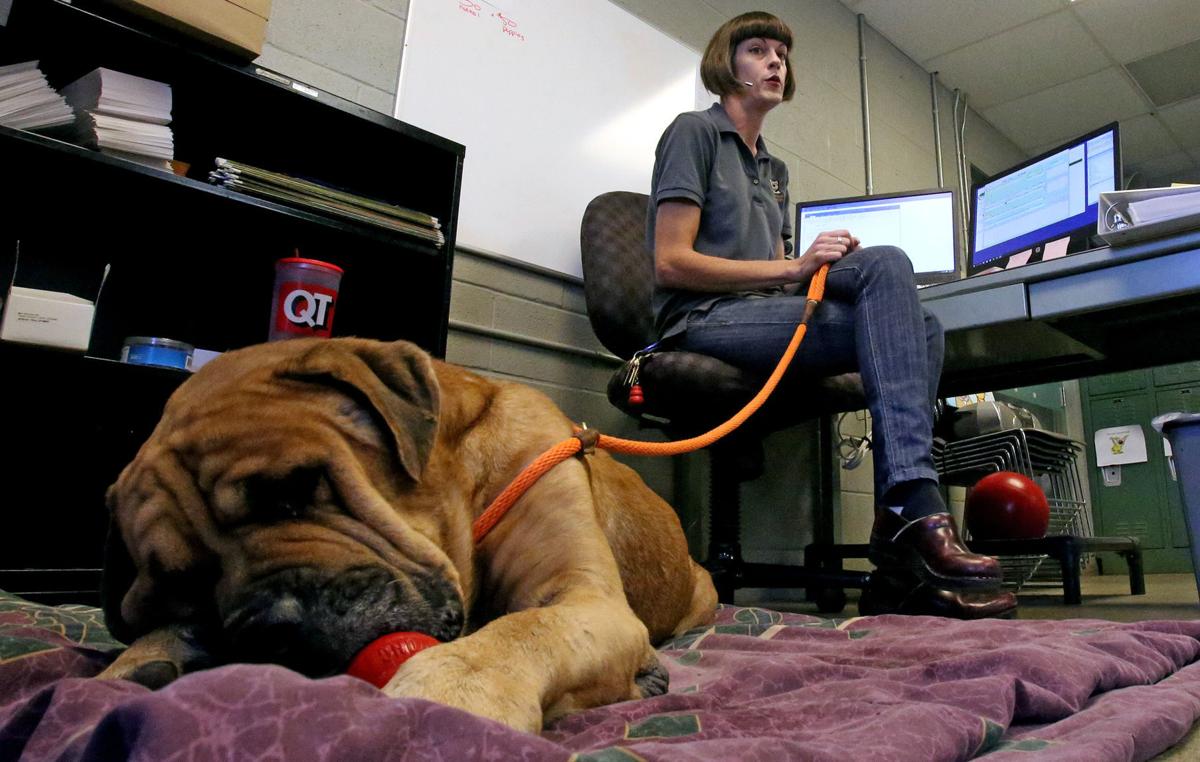Pima County’s new plan to help cats and dogs is more about people than pets.
The county’s Animal Care Center started operating a Pet Support Center hotline last week for pet owners who have questions or concerns or are thinking of surrendering an animal. Callers who dial 724-7222 can select pet adoptions, lost or found pets, giving up a pet and low-cost clinics in the community.
One of the goals is to connect people with community resources that will help them resolve problems and, hopefully, keep their pets.
Another part of the plan, which will be fully implemented by Nov. 1, will require people to make an appointment to turn over their pet to PACC.
“This is the first step toward developing a more holistic approach to the pet homelessness problem in our community,” said Karen Hollish, PACC’s director of marking and development.
Funding for the new program came from PetSmart Charities, which awarded PACC just under $150,000 for the first year, she said.
Three people are working the hotline, she said, and are continuing to brainstorm ways to be more helpful to pet owners, including starting a fund to help pet owners through hard times.
“If you called the Animal Care Center, it used to be very hard to get anyone on the phone because everyone is out taking care of the animals,” Hollish said. On the hotline’s inaugural day last week, she said, 239 callers who rang the main line transferred to the hotline.
“It’s kind of almost staggering,” she said. “People have probably needed our help for years, and now we’re there for them.”
PACC, 4000 N. Silverbell Road, is basing its new program on ideas underway in other states — and at the Arizona Humane Society in Maricopa County.
The center there started a resource line in the fall of 2014 and now sometimes receives as many as 8,000 calls in a month, said Amanda Phox, who runs the Pet Resource Center.
She said the center anticipates about 93,000 calls during the current fiscal year, which ends Oct. 31. That’s about 20,000 more calls than the previous fiscal year.
Phox said the center also requires an appointment to turn over animals, and she said it’s been a great change.
“The feedback now that they have a structured appointment time is that this is a much better experience than before, when they had to wait in the lobby for hours,” she said.
Many people are finding ways to keep their pets, she said, either by being directed to lower-cost vet care, fixing a fence, getting help with neighbor disputes or connecting with someone in the community who can help with an animal’s behavioral problems.
“More than half the time, it has nothing to do directly with the animals,” she said. “More often, it’s a hardship the person is facing that puts them in a position where they can no longer keep their pet.”
Since it implemented the changes, the Maricopa County organization has reduced its pet intake rate by 55 percent and, in turn, dropped its euthanasia rate by 80 percent, said Bretta Nelson, a spokeswoman for the agency.
The key, she said, is being there not just for the pets, but for the people in the animals’ lives.
That’s what Jose Ocaño, PACC’s executive director of operations, hopes to see here.
People who bring in pets directly without an appointment or conversation ahead of time often have already emotionally disconnected from their animal, he said.
“When they get to the shelter, the kids have already said goodbye, but when they are on the phone, they are still inquiring,” he said. “Our goal is to get out of the biz of sheltering so many homeless pets and becoming more of a resource.”
The shelter will continue to take in stray animals, as it has before, and will make exceptions on appointments when an animal appears to be at risk or needs immediate medical attention.
Ocaño said he is not concerned about more animals being abandoned if appointments are required.
“There hasn’t been a correlation between these changes leading to more abandonments,” he said. “The reality is that people who are abandoning their animals aren’t looking to the shelter in the first place.”





